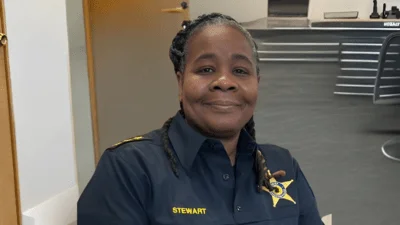Congressman Raja Krishnamoorthi | Congressman Raja Krishnamoorthi Official Website
Congressman Raja Krishnamoorthi | Congressman Raja Krishnamoorthi Official Website
WASHINGTON – On June 6, Congressman Raja Krishnamoorthi (D-IL) and Congresswoman Nancy Mace (R-SC) reintroduced the bipartisan Animal Welfare Enforcement Improvement Act (AWEIA). The legislation would improve Animal Welfare Act (AWA) enforcement by strengthening the U.S. Department of Agriculture’s (USDA’s) licensing process for animal dealers and exhibitors.
Animal dealers and exhibitors — including commercial dog-breeders, circuses, zoos, educational displays, petting farms/zoos, animal acts, wildlife parks, marine mammal parks, and some animal sanctuaries — are required to obtain a license and comply with the AWA. Dealers and exhibitors must renew their licenses each year. However, the current process relies on self-certification, and USDA’s stated policy is to rubber-stamp renewals, even in cases where the licensee is committing ongoing violations that endanger animals. This system currently has a lack of oversight and accountability that leads to risks to animal safety and welfare, like those seen on the Netflix show Tiger King. The Animal Welfare Enforcement Improvement Act strengthens AWA enforcement and the licensing process to hold dealers and exhibitors accountable.
“The Animal Welfare Act remains essential legislation for guaranteeing the treatment and care of animals, but it only works when it is enforced,” said Congressman Raja Krishnamoorthi. “The Animal Welfare Enforcement Improvement Act will ensure that the law is properly enforced by closing longstanding loopholes that allow businesses that mistreat animals to continue to do so.”
"As strong advocates for animal welfare, the Animal Welfare Improvement Act is a crucial step towards protecting our furry friends,” said Representative Mace. “Requiring annual license renewal ensures the individuals responsible for caring for animals are held accountable and remain committed to upholding the highest standards. By preventing license holders with repeated violations from renewing their licenses without additional oversight, we will prioritize the well-being of animals and guarantee those entrusted with their care are held to the highest level of responsibility. Furthermore, the act's provision for revoking licenses in cases of repeat violations that harm animal well-being serves as a powerful deterrent against any neglect or mistreatment, ensuring a safer and more compassionate environment for all animals."
“For far too long, the USDA has failed to adequately enforce the Animal Welfare Act, allowing businesses to continually mistreat animals," said Susan Millward, Animal Welfare Institute’s Executive Director and CEO. “The situation has further deteriorated in the last several years, even as high-profile cases such as Envigo, which necessitated the rescue of 4,000 beagles, have brought unprecedented public attention to the activities of breeders licensed under the AWA. The USDA needs to stop allowing facilities to remain persistently and egregiously out of compliance and start taking action sooner — not merely after a case becomes highly publicized.”
“The USDA has repeatedly failed to enforce the law, while hundreds of thousands of animals suffer in federally licensed facilities,” said Richard Patch, Vice President of Federal Affairs for the ASPCA. “We applaud Representatives Krishnamoorthi and Mace for introducing the Animal Welfare Enforcement Improvement Act to help repair the USDA’s broken system by ensuring better inspections and licensing of animal businesses along with greater transparency for the public and we urge Congress to include this measure in the upcoming Farm Bill.”
Key provisions of the legislation include:
- Requiring animal dealers and exhibitors to renew their licenses annually, including a full pre-license inspection.
- Inspections before issuing or renewing a license must be unannounced.
- For initial applications, the applicant would have only two chances to pass an inspection. If any noncompliance is observed during the second inspection, the application would be denied, and the applicant could reapply after one year.
- Renewal would require that the licensee have no more than one documented noncompliance with any standard for the humane care of animals during the previous two years.
- Prohibiting USDA from issuing or renewing a license if the dealer or exhibitor has been found to have violated any federal, state, or local animal welfare law, or if the applicant is applying for a license to circumvent a state or local law prohibiting the private ownership of certain animals as pets.\
- Requiring USDA to suspend the license of any dealer or exhibitor who commits a violation that presents a risk to animal welfare, and to permanently revoke the license (after notice and opportunity for a hearing) if the violation persists or the licensee has committed multiple violations.
- Preventing dealers and exhibitors whose licenses are suspended or revoked from being granted another license under another business name or through a business partner or family member, or from being employed by another licensee to work with animals during the period of the suspension or revocation.
- Requiring USDA to publish all inspection reports, enforcement records, and animal inventories online without redactions (as it did prior to February 2017).
Original source can be foundhere.






 Alerts Sign-up
Alerts Sign-up